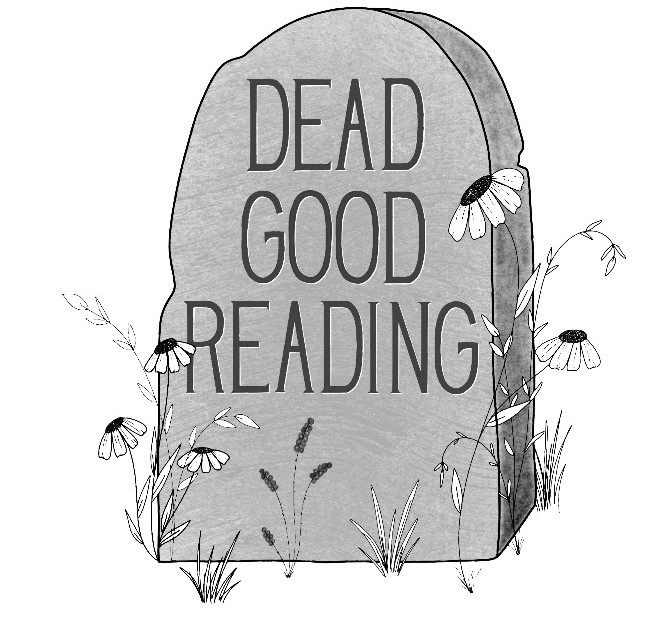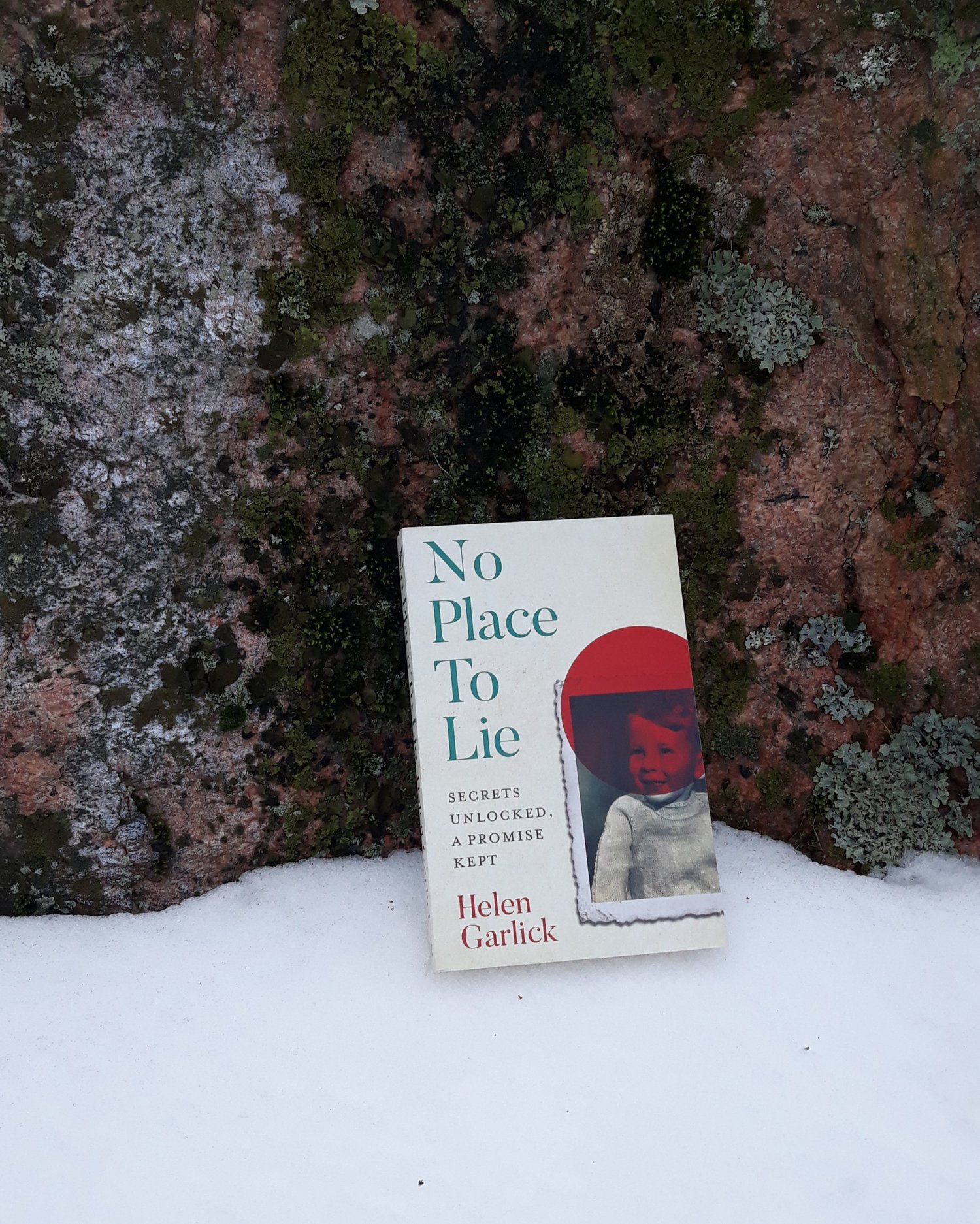This month I am taking part in Memoir March. Memoirs are an interesting genre of books. Memoirs are based on people’s life stories but memories are not fixed entities, instead feelings towards, and interpretations of, memories might change over time. Furthermore, whilst memoirs are based on ‘true events’, sometimes the truth needs to bend to fit the narrative. Memoirs around grief, dying and loss appear to be sprouting everywhere and I was spoiled for choice when selecting books to read this month.
No Place to Lie is part memoir and part fiction as Helen Garlick reflects on the death of her brother David, and the impact this has had on her family. The book starts with a fictionalized account of her parents arriving at the house her brother is staying. Her father Geoffrey goes inside, her mother Monica stays in the car.
“She wakes up from her reverie: Geoffrey is tapping on the car window.
’Monica, Monica.’
He says her name over and over. She winds the window down and sees her husband’s green eyes are wet, his pupils black holes. His face is ashen. She watches him for the seconds it takes him to find some words. Geoffrey always knows what to say. What on earth is wrong with him?
’Don’t come out. Stay in the car,’ he stammers. ‘I don’t know what’s happened. There must have been an accident. Or there’s been an intruder’”
— No place to lie Page:7
Garlick’s father has found the dead body of his son David inside and can’t compute the news. While this excerpt outlines the initial shock that Garlick’s parents must have experienced, it also speaks volumes of the way her father will continue to treat her brother’s death. Throughout his life, Garlick’s father will deny that his son took his own life. Instead, he focuses his energy on finding a supposed ‘intruder’ who might have killed his son.
Garlick’s brother died by suicide in the early 80s. Garlick at the time was travelling in the United States. She returned to the UK as quickly as she could. Garlick’s narrative highlights the pain of losing a sibling. This pain is further compounded by the fact that she quickly realises it was a suicide, but is not able to openly discuss this with her family. Her father will never be able to openly admit his son took his own life, perhaps he genuinely believes someone murdered his son, but more likely, the shame around suicides and the sense of failure he may have felt will have prevented him from acknowledging how his son died.
Suicide is still a sensitive topic. Deaths by suicide come with a lot of unanswered questions for those left behind. Furthermore to this day, and even more so in the 80s, there is a moral judgement around those who take their own lives. Because of the narrative that her father creates around her brother’s death, it is even more complicated for Garlick to figure out the inner life of her brother and what may have led to David’s decision to take his own life.
There are complicated dynamics within Garlick’s family, notions of shame and guilt are present in each of the ‘characters’. This is clear in the way they deal with the loss of David. But this is not the only complexity that is part of their family life.
From the outset Garlick tells us that her mother had a big secret which she took to the grave. I won’t reveal the secret here, but maybe because I’d just read a bunch of books about forensics and crime, and probably because I am from a different generation than Garlick, I was a bit underwhelmed and not as shocked by ‘the secret’. (I admit thinking she may have been a secret serial killer is also a bit much…) But the point Garlick makes about not really knowing people in your intimate circle is a pertinent one. Furthermore, what is considered ‘shocking’ or ‘revealing’ will be based on how you know a person. Or how you think you know a person.
No Place to Lie is at times painful to read, as there are clear tensions between Garlick’s father’s perception of their household, versus the reality, or the experience of the others in that same household. This memoir highlights that nuclear families can be far from the ideal that is often portrayed. Deaths by suicide are always complicated to make sense of and No Place to Lie shows how family dynamics can aid or hinder this process. It thus came as no surprise that Garlick professionally has worked as a family lawyer and mediator and aims to help people with the best interests of the family in mind.
For more information about Helen Garlick, please visit her website.


Leave a Reply